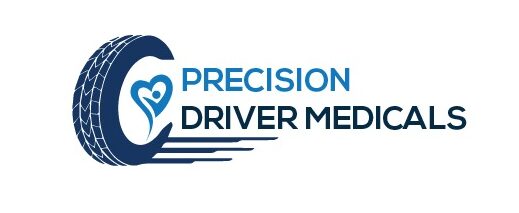Medicals for Taxi Drivers: Appointments, Reviews, Practitioner and Licence- In the UK, taxi drivers play a crucial role in providing reliable and secure transportation. Their ability to meet the necessary health and safety standards is ensured through rigorous medical screening, a requirement set by regulatory authorities such as the Driver and Vehicle Licensing Agency (DVLA).
This blog article will review the importance of medical examinations for taxi drivers in the United Kingdom, the procedures involved, and why public and private hire drivers require them.

Why Medicals for Taxi Drivers Are Important
The safety of customers and other drivers on the road is the primary goal of medical exams for taxi drivers. To carry out their jobs, taxi drivers must have good physical and mental health as they are in charge of their customers’ wellbeing. The following are some main arguments in favour of taxi drivers having health insurance:
- Passenger Safety: Ensuring that drivers are in good health reduces the risk of accidents caused by medical conditions.
- Driver Wellbeing: Regular medical check-ups help detect health issues early, allowing drivers to seek timely treatment.
- Regulatory Compliance: Meeting the medical requirements is a legal obligation for obtaining and renewing a taxi licence in the UK.
- Public Confidence: When passengers know that their drivers are medically fit, it boosts their confidence in taxi services.
Medical Test for Taxi Drivers: What to Expect
The medical test for taxi drivers is designed to assess a driver’s physical and mental fitness. A registered medical practitioner conducts the test and follows the Driver and Vehicle Licensing Agency (DVLA) guidelines. Here are the critical components of the medical test:
Medicals for Taxi Drivers Physical Examination
- Vision Test: This includes checking visual acuity and peripheral vision. Drivers must meet the minimum eyesight standard to see clearly on the road.
- Hearing Test: Good hearing is essential for safe driving. The test ensures drivers can hear emergency sirens, horns, and other crucial sounds.
- Cardiovascular Health: The examination includes checking blood pressure and heart health to detect underlying cardiovascular issues.
- Neurological Assessment: This assesses the driver’s nervous system to rule out conditions like epilepsy or other neurological disorders.
- Mobility and Coordination: The test evaluates the driver’s ability to perform physical tasks required for driving, such as turning the steering wheel and pressing pedals.
Taxi Drivers Medical History Review
The doctor will review the driver’s medical history to identify past or ongoing health issues. This includes checking for:
- Chronic Conditions include diabetes, asthma, or arthritis that may affect driving ability.
- Mental Health: Assessing the driver’s mental health to ensure they are not suffering from conditions that could impair their judgement or reaction times.
- Medications: Review any medications the driver takes to ensure they do not have side effects that could impact driving.

Medical Test for Private Hire Drivers
Private hire drivers, like taxi drivers, must also undergo medical examinations to meet the necessary health standards. The medical test for private hire drivers is similar to that for taxi drivers, focusing on the following areas:
- General Health: Checking for overall physical fitness and the ability to perform driving tasks safely.
- Specific Conditions: Identifying health conditions that may pose a risk while driving, such as sleep apnea or chronic fatigue syndrome.
- Substance Use: Ensuring the driver is not using substances that could impair their ability to drive safely.
Medical Check-Up for Taxi Licence: The Process
Obtaining a medical check-up for a taxi licence involves several steps. Here is a comprehensive guide to the process:
Booking the Appointment
- Find a Registered Practitioner: Ensure that the medical practitioner conducting the examination is registered with the General Medical Council (GMC).
- Schedule an Appointment: Book your appointment in advance, as medical check-ups can be time-consuming.
Preparing for the Examination
- Gather Medical Records: Bring any relevant medical records, including details of past illnesses and treatments.
- List of Medications: Prepare a list of all medications you are currently taking.
- Lifestyle Habits: Be ready to discuss lifestyle habits such as smoking, alcohol consumption, and exercise routines, as these can impact your health and fitness for driving.

Undergoing the Medical Examination
- Physical Tests: Undergo the necessary physical tests, including vision, hearing, and cardiovascular health checks.
- Medical History Review: Provide detailed information about your medical history and answer any questions from the practitioner.
- Additional Tests: Additional tests such as blood tests or an electrocardiogram (ECG) may be required depending on your medical history and the initial examination results.
Receiving the Results
- Medical Report: You will receive a medical report detailing the findings after the examination.
- Submission to Licensing Authority: Submit the medical report to the licensing authority as part of your taxi licence application or renewal process.
Benefits of Regular Medical Examinations for Taxi Drivers
Regular medical examinations offer several benefits for taxi drivers, including:
- Early Detection of Health Issues: Regular check-ups can identify health problems early, allowing timely treatment and management.
- Enhanced Driver Confidence: Knowing they are in good health can boost drivers’ confidence.
- Improved Public Safety: Ensuring all drivers are medically fit enhances public safety on the streets.
- Professional Image: Regular medical examinations contribute to a professional image for taxi drivers, showing commitment to safety and quality service.
- Reduced Insurance Costs: Being medically certified can sometimes lead to reduced insurance premiums, as it demonstrates lower risk.

How to Choose the Right Medical Practitioner
Choosing the right medical practitioner for your taxi driver’s examination is crucial. Here are some tips to help you select a suitable provider:
- Check Credentials: Ensure the practitioner is registered with the General Medical Council (GMC) and has experience in conducting medical examinations for drivers.
- Read Reviews: Look for reviews and testimonials from other drivers to gauge the practitioner’s reliability and professionalism.
- Compare Costs: While cost shouldn’t be the only factor, it’s worth comparing prices to ensure you’re getting value for your money.
- Convenience: Consider the location and availability of the practitioner. Choose someone who is conveniently located and has flexible appointment times.
Common Health Issues Identified in Taxi Driver Medicals
During medical examinations, specific health issues are commonly identified among taxi drivers. These include:
- High Blood Pressure: Often due to stress and a sedentary lifestyle.
- Diabetes: Regular monitoring is essential to prevent complications.
- Obesity: This can lead to other health problems and affect driving ability.
- Sleep Disorders: Conditions like sleep apnea can impair alertness and reaction times.
- Vision Problems: Essential for safe driving, vision issues must be promptly addressed.
Maintaining Good Health as a Taxi Driver
Carrying good health is essential for taxi drivers to pass their medical examinations and stay fit. Here are some tips for staying healthy:
- Regular Exercise: Incorporate physical activity into your daily routine to maintain fitness and reduce stress.
- Healthy Diet: Eat a balanced diet of fruits, vegetables, and lean proteins. Avoid excessive junk food and sugary drinks.
- Stay Hydrated: Drink plenty of water throughout the day to stay hydrated and alert.
- Get Enough Sleep: Ensure adequate rest to avoid fatigue and maintain mental sharpness.
- Routine Check-ups: See a doctor for your next licence renewal. Regular check-ups can help catch and manage health issues early.
Medicals for Taxi Drivers Judgment
Medicals for taxi drivers in the UK are vital to ensuring road safety and compliance with regulatory standards. The comprehensive medical test for taxi and private hire drivers assesses various aspects of health, from physical fitness to mental wellbeing.
By undergoing regular medical examinations, drivers can ensure they are fit to provide safe and reliable transportation services. If you are a taxi or private hire driver, schedule your medical check-up and comply with the latest health and safety regulations. Taking these steps secures your licence and contributes to a safer and healthier community for everyone.
Remember, maintaining your health is not just about passing a test; it’s about ensuring you can provide the best possible service to your passengers while keeping yourself safe and well. Schedule your medical examination today and stay on the road to good health and professional success.



